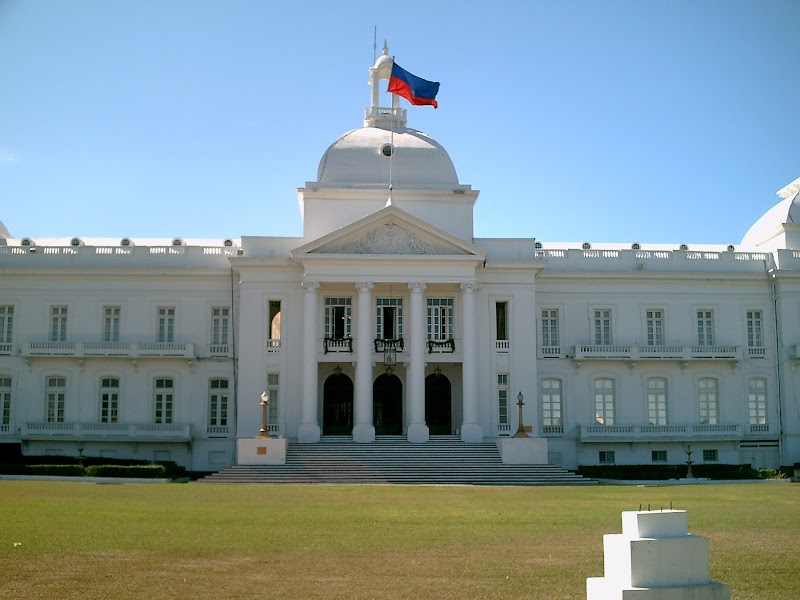Jean-Jacques Dessalines
Jean-Jacques Dessalines, born September 20, 1758, was the first President of Haiti. His life was marked by struggle, leadership, and a profound impact on Haitian history. Dessalines was born enslaved on a plantation in Grande-Rivière-du-Nord, Saint-Domingue (now Haiti).
Background and Early Life:
- Born into slavery, Jean-Jacques Dessalines endured harsh conditions and witnessed the brutality of the slave system.
- He possessed a strong personality and leadership qualities, which emerged during the Haitian Revolution.
- Dessalines had limited formal education, but his intelligence and charisma made him a respected figure among his peers.
Role in the Haitian Revolution:
- Dessalines played a crucial role in the Haitian Revolution, which began in 1791 and aimed to end French colonial rule.
- He joined the rebel forces led by Toussaint Louverture and quickly rose through the ranks, demonstrating bravery and military prowess.
- Dessalines became a prominent leader in the revolution, known for his strategic thinking and fierce determination.
Presidency and Accomplishments:
- In 1804, Haiti declared independence from France, and Dessalines became the country’s first President.
- He adopted the name Jacques I and established an authoritarian rule, aimed at maintaining stability and order.
- Dessalines implemented various policies, including land reforms and the establishment of a national army, to consolidate his power.
- His leadership, however, was marked by violence and brutality, which led to internal conflicts and opposition.
Legacy and Impact:
- Dessalines’ leadership during the Haitian Revolution and his role as the first President of Haiti made him a national hero.
- He is remembered for his determination, courage, and the significant role he played in securing Haitian independence.
- Dessalines’ legacy is complex, as his authoritarian rule and violent methods have also been subject to criticism.
Popular Facts:
- Dessalines was known for his strict military discipline and rigorous training methods, which contributed to the success of the Haitian army.
- He was a skilled swordsman and enjoyed hunting and horseback riding.
- Dessalines’ reign lasted only two years, as he was assassinated in 1806 by disgruntled military officers.
The life of Jean-Jacques Dessalines is a testament to resilience, leadership, and the pursuit of freedom. His contributions to Haitian independence and his role as the country’s first President continue to shape the nation’s history and identity.
Emblem of Haiti
To enrich your insights into presidential figures worldwide, also explore some prominent first presidents from other countries, such as Guyana, <a class="inner" href="https://www.amelitabaltar.com/Guinea-bissaus-presidential-genesis-the-first-to-lead/” title=”Guinea-Bissau’s Presidential Genesis: The First to Lead” alt=”Guinea-Bissau’s Presidential Genesis: The First to Lead”>GuineaBissau and Guinea. Delving into the leadership journeys of these figures can offer valuable perspectives on their historical significance and pivotal roles in shaping global politics.
The official residence and symbol of the Haiti President
10 Iconic Presidents Who Shaped Haiti’s History

Here are 10 of the most popular presidents from Haiti:
- Toussaint Louverture (1801-1802) – Considered a national hero and leader of the Haitian Revolution, Louverture led the fight for independence from France and established Haiti as the first black republic.
- Jean-Jacques Dessalines (1804-1806) – As the first Emperor of Haiti, Dessalines proclaimed the country’s independence and implemented key policies like land redistribution.
- Alexandre Pétion (1806-1818) – Known for his efforts in promoting education and the development of institutions, Pétion is highly regarded for his commitment to social progress.
- Pierre Nord Alexis (1902-1908) – Under Alexis’s presidency, public works were prioritized, leading to infrastructure improvements and economic growth.
- Sténio Vincent (1930-1941) – Vincent is remembered for modernizing Haiti’s infrastructure, expanding education, and promoting Haitian art and culture.
- Dumarsais Estimé (1946-1950) – Estimé focused on social development and introduced reforms for workers’ rights, public health, and education.
- François Duvalier (1957-1971) – Commonly known as Papa Doc, Duvalier established a totalitarian regime characterized by repression and political violence.
- Jean-Bertrand Aristide (1991-1996, 2001-2004) – Aristide, a former Roman Catholic priest, aimed to address social and economic inequalities during his terms, although his presidencies were marked by political instability.
- René Préval (1996-2001, 2006-2011) – Préval prioritized agriculture and rural development, but his presidency also faced numerous challenges, including natural disasters and widespread poverty.
- Michel Martelly (2011-2016) – Martelly sought to revitalize tourism, improve infrastructure, and strengthen the economy, but his term was marred by allegations of corruption and political gridlock.
These presidents have each left their mark on Haiti’s history, with their legacies shaping the country’s social, political, and economic landscape. From founding fathers to reformers and controversial figures, their accomplishments and policies have played a significant role in the development of Haiti as we know it today.

